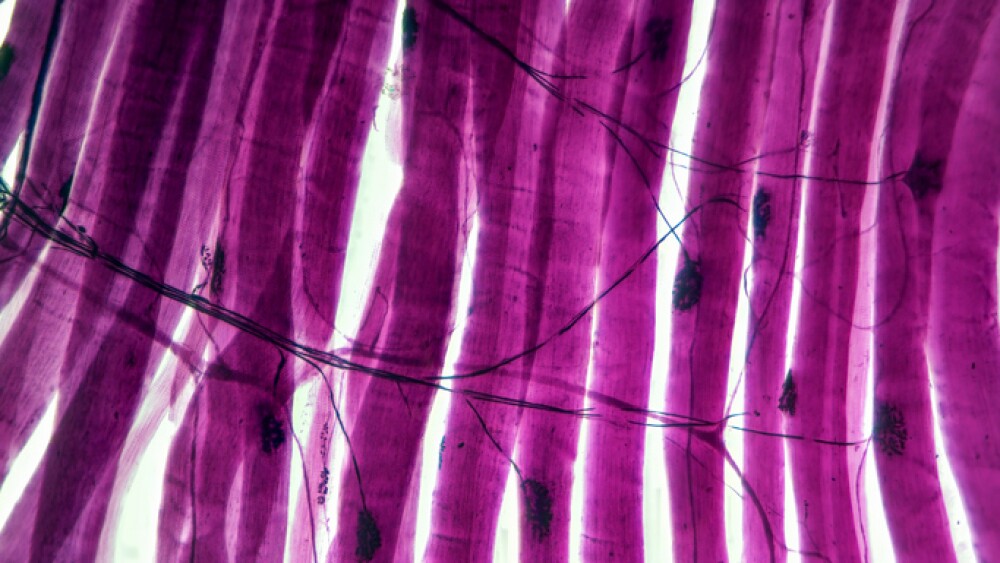Global Blood Therapeutics, Inc. and the Sickle Cell Disease Association of America, Inc. will host the 11th Annual Sickle Cell Disease Therapeutics Conference on Wednesday, September 14th.
Keynote by Admiral Rachel Levine, M.D., Assistant Secretary for Health, U.S. Department of Health and Human Services
SOUTH SAN FRANCISCO, Calif. and BALTIMORE, Sept. 08, 2022 (GLOBE NEWSWIRE) -- Global Blood Therapeutics, Inc. (GBT) (NASDAQ: GBT) and the Sickle Cell Disease Association of America, Inc. (SCDAA) will host the 11th Annual Sickle Cell Disease (SCD) Therapeutics Conference on Wednesday, September 14th. The virtual conference, which takes place during National Sickle Cell Awareness Month, is open to the public and will be live streamed on the SCD Therapeutics Conference website and the Facebook page of Sickle Cell Warriors, an SCD community organization.
Admiral Rachel Levine, M.D., assistant secretary for health, U.S. Department of Health and Human Services (HHS), will provide remarks at the conference. In her role, Admiral Levine fights every day to improve the health and well-being of all Americans. She's working to help the nation overcome the COVID-19 pandemic and build a stronger foundation for a healthier future.
“Each year, the SCD Therapeutics Conference highlights the growing interest and progress that is being made to improve the treatment of sickle cell disease, though more is needed to achieve equitable health and personal outcomes for this community,” said Kim Smith-Whitley, M.D., executive vice president and head of research and development at GBT. “We are honored to again co-host the conference with the SCDAA and livestream the event with the Sickle Cell Warriors in order to advance the dialogue around addressing the multitude of opportunities we have to improve the outlook for people living with sickle cell disease.”
This year’s conference will touch on a number of important topics, including the impact of SCD on patients and caregivers and exploring the caregiver experience throughout the continuum of care, as well a discussion of the national SCD legislative agenda.
“We are excited for the opportunity to bring together leading physicians, warriors, advocates, and policymakers to discuss the next frontiers in SCD and how we can continue to drive meaningful change in the community,” said Regina Hartfield, president and chief executive officer of SCDAA. “This year’s conference will allow today’s leaders in SCD the opportunity to discuss current unmet needs and recent trends in therapeutic development, all with the goal of building access to comprehensive care to enable a better future for people living with sickle cell.”
In addition to Admiral Levine, the 11th Annual SCD Therapeutics Conference will feature the following speakers and panelists:
- The Honorable Chris Van Hollen, U.S. Senator, Maryland
- Lewis Hsu, M.D., Ph.D., Chief Medical Officer, Director of the Sickle Cell Center and Professor of Pediatrics; Pediatric Hematologist, University of Illinois at Chicago
- Alan Anderson, M.D., Assistant Professor of Clinical Pediatrics, University of South Carolina School of Medicine, Greenville, South Carolina; Medical Director, Comprehensive Sickle Cell Disease Program, Prisma Health
- Kofi Anie, MBE, Ph.D., AFBPsS, Psychology Service Lead, London North West University Healthcare NHS Trust
- Richard Drachtman, M.D., Clinical Section Chief, Pediatric Hematology/Oncology Division; Medical Director, Pediatric Hematology/Oncology Clinical Program; Professor of Pediatrics Rutgers Cancer Institute of New Jersey, Rutgers Robert Wood Johnson Medical School
- Marsha Treadwell, Ph.D., Professor of Pediatrics, Division of Hematology, and Jordan Fund Endowed Chair at the University of California San Francisco (UCSF); Co-Chair of the Diversity, Equity and Inclusion Council for the UCSF Benioff Children’s Hospitals
- Ayana L. Johnson, SCDAA National Teen Ambassador
- Hermionne Johnson, R.N., M.S.N., SCD Caregiver
- Ronisha Edwards-Elliot, SCD Patient Advocate
- Rebecca Robbins, SCD Caregiver
- Jennifer George, B.A. & Stephanie George, B.Sc., M.Sc., SCD Patient Advocates & Caregivers
- Biree Andemariam, M.D., Professor of Medicine, American Red Cross Endowed Chair in Transfusion Medicine, Division of Hematology/Oncology; Director, New England Sickle Cell Institute, University of Connecticut Health; Vice Chair of the Board, SCDAA
- Chancellor Donald, M.D., Chair, American Society of Hematology (ASH) Committee on Practice; Assistant Professor, Tulane University School of Medicine
Multiple companies that have and are developing treatments for patients with SCD will present at the conference, including Agios Pharmaceuticals, CSL Behring, Forma Therapeutics, GBT, Graphite Bio, Pfizer, and Vertex Pharmaceuticals/CRISPR Therapeutics.
For more information about the conference or to register to attend, visit http://scdconference.com/. Follow the conversation on Twitter using the hashtag #SCDTC.
About Sickle Cell Disease
It is estimated that more than 100,000 people in the United States,1 52,000 people in Europe,2 up to 100,000 people in Brazil,3 and millions of people throughout the world have sickle cell disease (SCD).1 SCD occurs particularly among those whose ancestors are from sub-Saharan Africa, though it also occurs in people of Hispanic, South Asian, Southern European and Middle Eastern ancestry.1 SCD is a lifelong inherited blood disorder that impacts hemoglobin, a protein carried by red blood cells that delivers oxygen to tissues and organs throughout the body.4 Due to a genetic mutation, individuals with SCD form abnormal hemoglobin known as sickle hemoglobin. When sickle hemoglobin becomes deoxygenated, it polymerizes to form rods, which deforms the red blood cells into sickled – crescent-shaped, rigid – cells.4-6 The recurrent sickling process causes destruction of the red blood cells, hemolysis and anemia (low hemoglobin due to red blood cell destruction), which drives vascular inflammation contributing to blockages in capillaries and small blood vessels (vaso-occlusion) that impede the flow of blood and oxygen delivery throughout the body. Episodes of painful vascular occlusions are commonly referred to as vaso-occlusive crises (VOCs). The diminished oxygen delivery to tissues and organs can lead to life-threatening complications, including stroke and irreversible organ damage.5-9 Complications of SCD begin in early childhood and can include neurocognitive impairment, acute chest syndrome, and silent and overt stroke, among other serious issues.10 Early intervention and treatment of SCD have shown potential to modify the course of this disease, reduce symptoms and events, prevent long-term organ damage, and extend life expectancy.5
About Global Blood Therapeutics
Global Blood Therapeutics, Inc. (GBT) is a biopharmaceutical company dedicated to the discovery, development and delivery of life-changing treatments that provide hope to underserved patient communities, starting with sickle cell disease (SCD). Founded in 2011, GBT is delivering on its goal to transform the treatment and care of SCD, a lifelong, devastating inherited blood disorder. The company has introduced Oxbryta® (voxelotor), the first FDA-approved medicine that directly inhibits sickle hemoglobin (HbS) polymerization, the root cause of red blood cell sickling in SCD. GBT is also advancing its pipeline program in SCD with inclacumab, a P-selectin inhibitor in Phase 3 development to address pain crises associated with the disease, and GBT021601 (GBT601), the company’s next generation HbS polymerization inhibitor. In addition, GBT’s drug discovery teams are working on new targets to develop the next generation of treatments for SCD. To learn more, please visit www.gbt.com and follow the company on Twitter @GBT_news.
About SCDAA
SCDAA’s mission is: To advocate for people affected by sickle cell conditions and empower community-based organizations to maximize quality of life and raise public consciousness while advancing the search for a universal cure. Visit http://www.sicklecelldisease.org/.
References
- Centers for Disease Control and Prevention. Sickle Cell Disease Data and Statistics (SCD). https://www.cdc.gov/ncbddd/sicklecell/data.html. Accessed June 7, 2022.
- European Medicines Agency. https://www.ema.europa.eu/en/medicines/human/orphan-designations/eu3182125. Accessed June 12, 2022.
- Ministério da Saúde (Brasil), Protocolo Clínico e Diretrizes Terapêuticas da Doença Falciforme, Feb. 19, 2018
- National Heart, Lung, and Blood Institute. Sickle Cell Disease. https://www.nhlbi.nih.gov/health-topics/sickle-cell-disease. Accessed February 23, 2022.
- Kato GJ, et al. Nat Rev Dis Primers. 2018;4:18010.
- Rees DC, et al. Lancet. 2010;376(9757):2018-2031.
- Kato GJ, et al. J Clin Invest. 2017;127(3):750-760.
- Caboot JB, et al. Paediatr Respir Rev. 2014;15(1):17-23.
- Nader E, et al. Front Immunol. 2020 Mar 13;11:454.
- Kanter J, et al. Blood Rev. 2013 Nov;27(6):279-87.
Contact:
Steven Immergut (media)
+1 650-410-3258
simmergut@gbt.com
Courtney Roberts (investors)
+1 650-351-7881
croberts@gbt.com
SCDAA Contact Information:
Emma Day
eday@sicklecelldisease.org
Kyri Jacobs
kjacobs@sicklecelldisease.org





